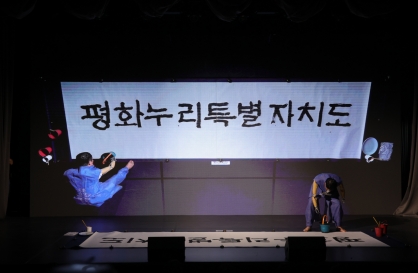Anti-corruption officials from Asia and Pacific countries on Tuesday shared best practices and discussed ways to strengthen cooperation to fight bribery, influence-peddling and other irregularities
Some 30 representatives from nine agencies participated in the two-day Anti-Corruption Agency Forum which began Monday. The seventh biennial conference was hosted by the Anti-Corruption and Civil Rights Commission of Korea.
“Corruption has become a transnational issue with the economic globalization. As a result, we are witnessing more and more cases of foreign bribery and illegal financial transactions across the border,” Lee Sung-bo, chairman of the ACRC of Korea said in his opening remarks.
“Corruption is a global issue, which should be resolved through collective efforts of the international community.”
Some 30 representatives from nine agencies participated in the two-day Anti-Corruption Agency Forum which began Monday. The seventh biennial conference was hosted by the Anti-Corruption and Civil Rights Commission of Korea.
“Corruption has become a transnational issue with the economic globalization. As a result, we are witnessing more and more cases of foreign bribery and illegal financial transactions across the border,” Lee Sung-bo, chairman of the ACRC of Korea said in his opening remarks.
“Corruption is a global issue, which should be resolved through collective efforts of the international community.”

Participants shared latest developments and trends of anti-corruption activities of each country and around the world.
Indonesia’s Corruption Eradication Commission Commissioner Adnan Pandu Praja explained G20 Anti-corruption action plan established during the G20 summit in Seoul in 2010.
“We agreed to ensure anti corruption authorities to operate free from (outside) influence and provided with proper independence,” he said.
“Corruption eradication is a global agenda and its success depends on collaboration between each country.”
Theresa Hamilton, Deputy Commissioner of the Independent Commission Against Corruption, New South Wales in Australia, explained its investigation of corruption cases and the importance protecting whistleblowers.
“Many of ICAC investigations, the original information came from whistleblowers. It‘s very important that whistleblowers are protected. To encourage whistleblowers, education, training and attitude correction must be improved,” she said.
Anti-corruption commission leaders from Singapore, Malaysia, Hong Kong and Philippines followed suit to offer their presentations in promoting anticorruption policies.
Lee also introduced Korea’s anti-corruption strategies and experiences. The Seoul government first introduced the Anti-Corruption Act in 2001. The Anti-Corruption and Civil Rights Commission of Korea was established in 2008 by combining three state organizations ― the Ombudsman of Korea, the Independent Commission against Corruption and the Administrative Appeals Commission.
Since its inception, the ACRC has become the nation’s most satisfactory public agency thanks to its strenuous efforts to improve services and find solutions to citizens’ complaints, according to Lee.
Lee, however, admitted that prevailing corruption is still the biggest problem confronting the society of Korea.
“We understand that corruption prevention cannot be done by the Korean government alone. We can build anticorruption capacity more effectively through cooperation between governments and governments and international organizations,” he added.
The ACA Forum was established in 2002 with an aim of promoting the exchange and cooperation among anti-corruption agencies in the Asia-Pacific region. Since its inaugural meeting in Seoul, the forum has been a venue for policy dialogue among the heads of anti-corruption agencies. The next ACA Forum meeting will take place in Kuala Lumpur, Malaysia in 2015.
By Oh Kyu-wook (596story@heraldcorp.com)
-
Articles by Korea Herald





![[Graphic News] Number of coffee franchises in S. Korea rises 13%](http://res.heraldm.com/phpwas/restmb_idxmake.php?idx=644&simg=/content/image/2024/05/02/20240502050817_0.gif&u=)




![[Robert J. Fouser] AI changes rationale for learning languages](http://res.heraldm.com/phpwas/restmb_idxmake.php?idx=644&simg=/content/image/2024/05/02/20240502050811_0.jpg&u=)
![[Today’s K-pop] Stray Kids go gold in US with ‘Maniac’](http://res.heraldm.com/phpwas/restmb_idxmake.php?idx=644&simg=/content/image/2024/05/02/20240502050771_0.jpg&u=)






![[Eye Interview] 'If you live to 100, you might as well be happy,' says 88-year-old bestselling essayist](http://res.heraldm.com/phpwas/restmb_idxmake.php?idx=652&simg=/content/image/2024/05/03/20240503050674_0.jpg&u=)
